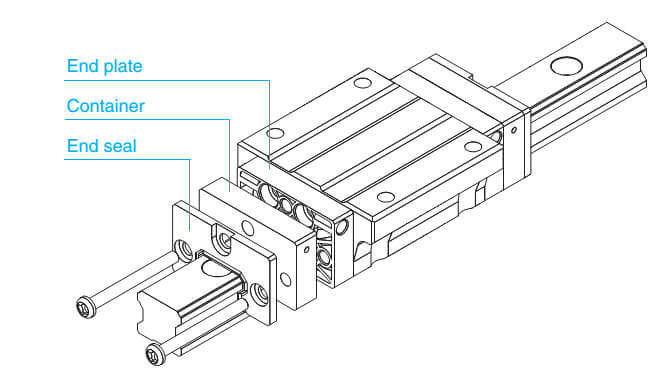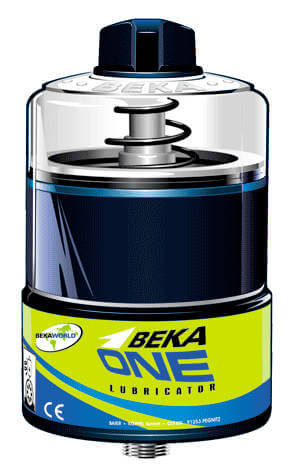
THE IMPORTANCE OF LUBRICATION
Depending on which study you read, anything from 40-60% of bearing failures are related to lubrication problems. If you have a constant motion, high cycling or mission critical application then lubrication requirements need to be addressed. The basic function of lubrication is to avoid metal to metal contact. The viscous oil fills the microscopic roughness of the surfaces and reduces the friction and wear of the two surfaces. At a basic level linear bearings are no different to rotary bearings in the requirement and function of lubrication.
In a linear bearing the shaft (or rail) is a complication as it is one part of the bearing surface and unlike a rotary bearing is difficult to seal and exposed to the environment. As a result the shaft surface loses grease much faster than an enclosed rotary bearing and is more susceptible to contamination. Grease consumption can be surprisingly high in some applications. We have one customer that has doubled the life of some of their linear bearings by simply increasing inspection frequency and giving their bearings a shot of grease once a month.
Grease consistency or hardness is rated with an NGLI number. A lower number is a more fluid grease and a higher number more rigid and we recommend NGLI2 for most applications. This consistency is often described as like peanut butter and it will adhere well in most common applications. A higher number may adhere better in some applications or reduce loses in high duty or elevated temperature applications.
A difficulty with higher NGLI greases is they don’t flow as well and may not consistently cover the raceways. Where consistency is required or ease of application then a lower NGLI number should be considered. Another way to extend service intervals is through the use of MF lubrication packs for SBC profile rail and the self lubricators on Rollon compact rail sliders. These control the application of grease to the rail surface and act as a grease reservoir for extend service intervals.
It is important to realise that noise and heat are an early sign of insufficient lubrication. In one case a customer wanted us to source a replacement ball nut that was starting to make a concerning high pitched noise. When we asked about lubrication and found that nobody could remember doing it, we suggested they do that first, and 12months later is it is still running fine.
If continual servicing is a problem or the grease requirements are high then you can also consider automatic grease lubricators. Most types allow the rate of grease use to be set in the field and some types can even be refilled.
You can find more information on lubrication and bearing failure modes here.

 Contact Us
Contact Us